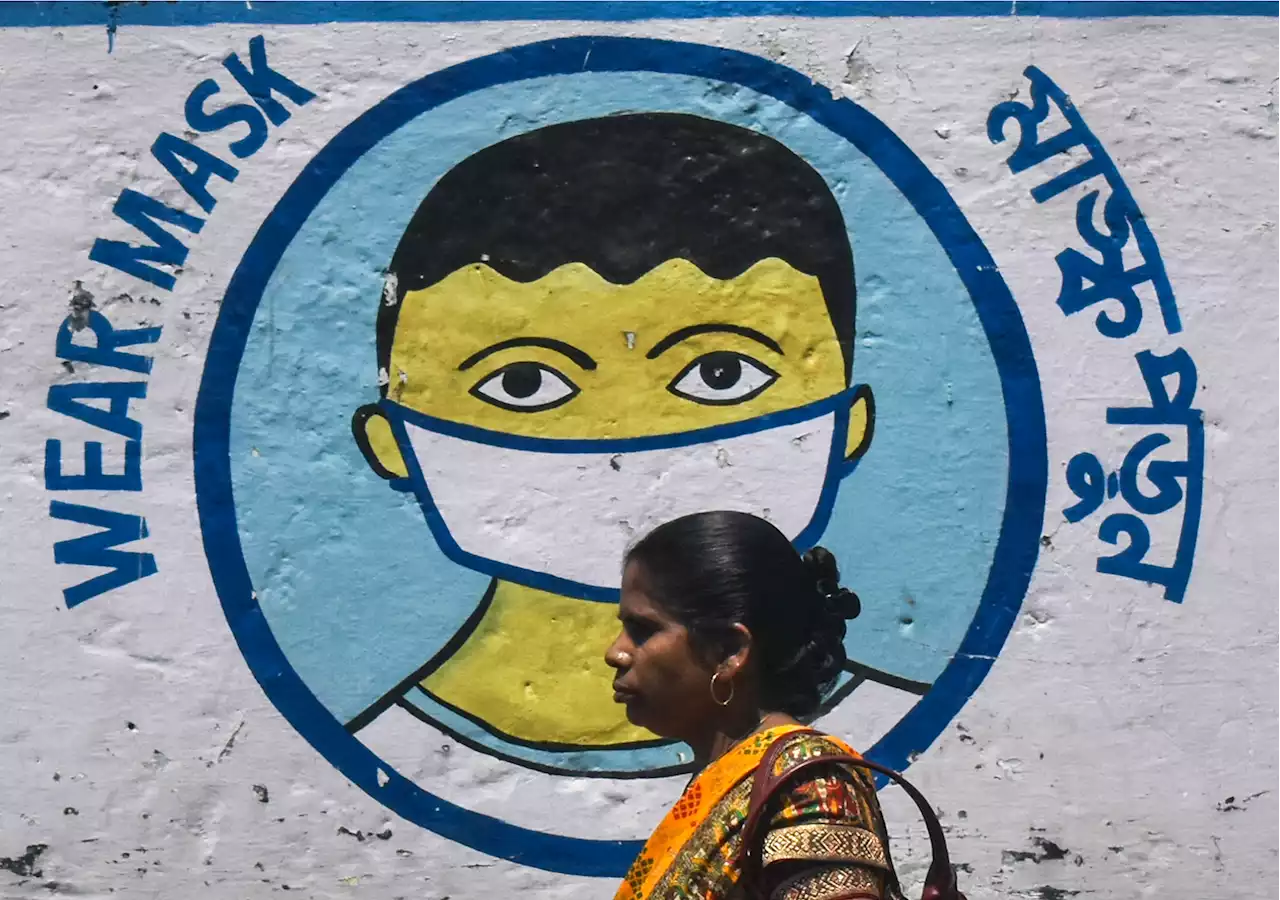The “Arcturus” subvariant is thought to be the most contagious strain since the start of the pandemic 🦠 But scientists believe that immunity from previous infections, as well as improving weather, have prevented it from taking hold
Unlike the UK, India did not experience large numbers of Kraken infections. Professor Francois Balloux, director of UCL Genetics Institute, said this could go some way to explain the subvariant’s slow progress.
“XBB.1.16 is closely related to the XBB.1.5 variant that caused the previous wavelet in parts of the world,” he told“As such, it is expected to spread best in countries that saw little XBB.1.5, such as India and China. Conversely, its impact should be minor in countries that had a sizeable number of XBB.1.5 cases earlier this year.”Professor Lawrence Young, a virologist at Warwick University, said: “A combination of vaccination and prior infection with other Omicron variants such as XXB.1.
“The elderly and clinical vulnerable need to remain cautious and come forward for their booster jabs.”
United Kingdom Latest News, United Kingdom Headlines
Similar News:You can also read news stories similar to this one that we have collected from other news sources.
 New Covid variant Arcturus - symptoms, vaccine efficacy, UK cases and moreNew Covid variant Arcturus - symptoms, vaccine efficacy, UK cases and what else we know so far
New Covid variant Arcturus - symptoms, vaccine efficacy, UK cases and moreNew Covid variant Arcturus - symptoms, vaccine efficacy, UK cases and what else we know so far
Read more »
 What to Know About New COVID-19 Variant ArcturusXBB.1.16—which a group of scientists on Twitter nicknamed “Arcturus”—is one of more than 600 Omicron subvariants that are currently circulating
What to Know About New COVID-19 Variant ArcturusXBB.1.16—which a group of scientists on Twitter nicknamed “Arcturus”—is one of more than 600 Omicron subvariants that are currently circulating
Read more »
 Arcturus - everything you need to know about the newest Covid strainThe latest Covid strain, said to be an Omicron sub-variant, Arcturus, may be up to 1.2 times more infectious that previous sub-variants, according to researchers.
Arcturus - everything you need to know about the newest Covid strainThe latest Covid strain, said to be an Omicron sub-variant, Arcturus, may be up to 1.2 times more infectious that previous sub-variants, according to researchers.
Read more »
 Fast-spreading Covid Arcturus may have unique symptom not seen in other strainsDoctors have reported spotting a symptom that has not been seen in previous variants and sub-variants of coronavirus.
Fast-spreading Covid Arcturus may have unique symptom not seen in other strainsDoctors have reported spotting a symptom that has not been seen in previous variants and sub-variants of coronavirus.
Read more »
Risk of New Retinal Vascular Occlusion After mRNA COVID-19 VaccinationThis cohort study examines the incidence of retinal vascular occlusion in individuals after receiving the mRNA COVID-19 vaccine.
Read more »
 New DCFHP-alum COVID-19 vaccine candidate shows durable, broad-spectrum protection in non-human primatesNew DCFHP-alum COVID-19 vaccine candidate shows durable, broad-spectrum protection in non-human primates COVID19vaccine DCFHP protein_nanoparticle OmicronBQ1 SARSCoV2 vaccinebooster COVID NatureComms Stanford czbiohub StanfordMed
New DCFHP-alum COVID-19 vaccine candidate shows durable, broad-spectrum protection in non-human primatesNew DCFHP-alum COVID-19 vaccine candidate shows durable, broad-spectrum protection in non-human primates COVID19vaccine DCFHP protein_nanoparticle OmicronBQ1 SARSCoV2 vaccinebooster COVID NatureComms Stanford czbiohub StanfordMed
Read more »
